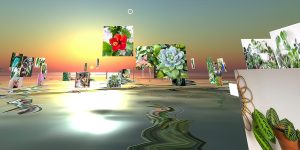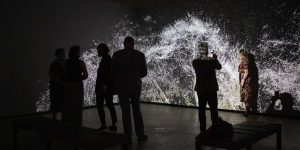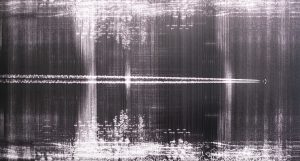PostSensorium

PostSensorium. Stranger Senses
Kwan Q Li (HK/US), Pohao Chi (TW/US), Weihan Jiang (CN/US), Weilu Ge (CN/US), Kelon Cen (CN/US), Ieva Viksne (LV), Gustavs Lociks (LV), Jung Eun Lee (KR/DE), Christina Vinke (DE)
“..to live means first and foremost to look, taste, feel, and smell the world around us.” (Emanuele Coccia, 2016) With more recent enhancements of immersive and sensing technologies, our 'sensoriums' have intensified and become more mediated than ever before. Art and concepts (that are our “strange tools” – coined by contemporary philosopher Alva Noë (2015)) are perfect instruments to stimulate our perception.

PostSensorium. Atmospheric Forest
Rasa Smite (LV), Raitis Smits (LV), and other RIXC Garden participant WebVR works.
Meandering between different realities, actual, hybrid and virtual, RIXC Garden program PostSensorium reflects upon an incessant evolution of the human and “more-than-human” sensoriums conditioned by new technological advancements. Located in a triangulation between three cities - Riga (LV), Boston (US) and Karlsruhe (DE), RIXC Garden program will feature Live Greenhouse Concert from Riga; an immersive screening program by young and emerging artists from Boston; and Virtual PostSensorium room for spatial webVR experiences and networked interactions.

PostSensorium. Hearing Notes
Krista Dintere (LV), Ivo Taurins (LV), Lauris Smits (LV), RIXC (LV), LiepU MPLab (LV)
Our senses have always been “mediated” – the sound can't be heard without the “medium” of water or air. With more recent enhancements of immersive and sensing technologies, our 'sensoriums' have intensified and become more mediated than ever before (Caroline A Jones, 2006). The 'constructivist' potential of the sound has been used to a large extent in music or radio, whereas 'experiential' capabilities such as sensual and immersive properties of the sound have been mainly explored by art practices that emerge outside of purely musical environments.

